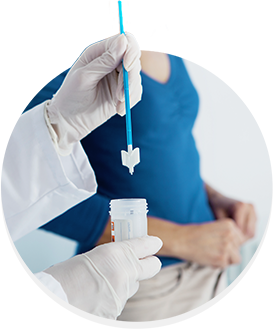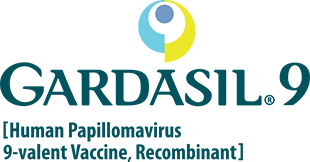Home > What is HPV?

HPV happens
“It isn’t a big deal. Until you get it, of course.”
HPV is a common sexually transmitted virus. Many low-risk HPV types will clear up on their own, but some can cause genital warts. There are also high-risk types that can cause cancers like cervical, vaginal, vulvar, anal and certain head and neck cancers, such as throat and back of mouth cancers.

HPV is common
“You can have HPV and pass it on without even knowing it.*”
It’s estimated that 75% of sexually active Canadians will have at least one HPV infection in their lifetime. Your partner can be infected without showing any signs or symptoms and can pass the virus on to you. And while condoms may reduce your chances of getting HPV, you can get infected just by skin-to-skin or oral contact with the genital area and without having intercourse.
* GARDASIL®9 is not indicated to reduce transmission.

HPV causes almost 100% of cervical cancer cases
“It’s estimated that 1,400 Canadian women will be diagnosed with cervical cancer each year.”
HPV can also cause other cancers like vulvar, vaginal, anal and certain head and neck cancers, such as throat and back of mouth cancers.

HPV can also cause genital warts
“Genital warts. Do you really need to hear more?”
It is estimated that every 15 minutes, one Canadian develops genital warts. Genital warts can cause considerable emotional stress and may have to be removed using medications or surgery.†‡ And they may still come back.
† GARDASIL®9 is not indicated for the treatment of genital warts.
‡ GARDASIL®9 is not indicated to address the consequences of genital warts.

HPV vaccination is NOT just for kids
“It’s not too late to get vaccinated for men and women up to 45.”
GARDASIL®9 can be administered in individuals 9–45 years of age.



